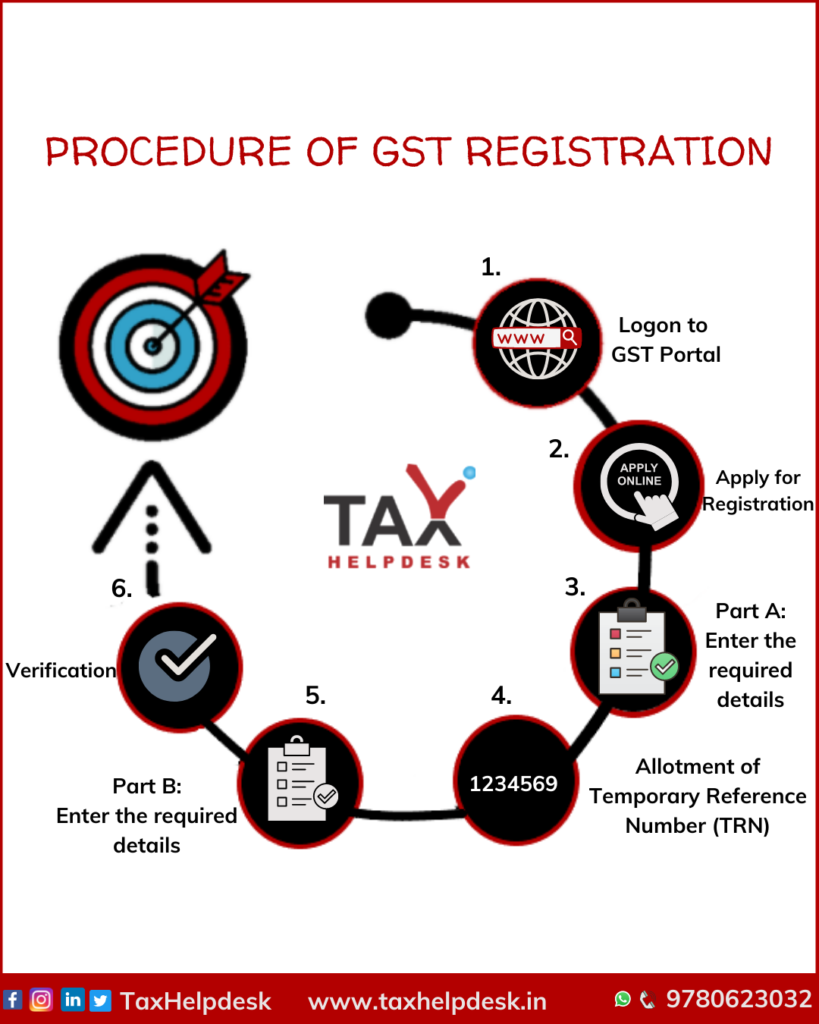Full List for Effective Singapore GST Registration
Wiki Article
The Ultimate Overview to Simplifying the GST Enrollment Refine and Needs for Local Business Owners

Recognizing GST Essentials
To realize the principles of the Item and Provider Tax (GST) system, little company owners should first understand its underlying concepts and effects. GST is a value-added tax imposed on the majority of items and services for domestic consumption. It intends to streamline the taxes procedure by replacing multiple indirect tax obligations imposed by the state and main governments. Under the GST regimen, companies are called for to sign up and accumulate tax on part of the government, guaranteeing transparency and conformity.One of the crucial principles of GST is input tax obligation credit history, which allows services to claim debt for taxes paid on their acquisitions. This mechanism protects against the cascading result of taxes and advertises efficiency in the tax system. In addition, GST is a destination-based tax, indicating that the tax is levied at the factor of consumption instead of the factor of origin. This makes certain fair circulation of tax obligation income amongst states based upon where the goods or solutions are taken in. Recognizing these basic concepts is crucial for little organization owners to navigate the intricacies of the GST system and make certain compliance with the legislation.
Qualification Standards for Enrollment
Having established a fundamental understanding of GST principles, little company proprietors must currently meet certain eligibility standards to proceed with the registration procedure (Singapore GST Registration). Businesses that were signed up under the previous tax obligation program (BARREL, service tax obligation, and so on) are likewise mandated to sign up under GST. Agricultural organizations that just provide produce out of main manufacturing are exempt from GST enrollment.Documents Required for GST Enrollment

Simplified Enrollment Process Actions
Complying with the collection and confirmation of the requisite documents, the enrollment procedure for GST can be navigated via a series of simplified actions developed to assist in reliable compliance for little service proprietors. Upon effective verification, an Application Referral Number (ARN) is provided, suggesting the completion of the GST enrollment procedure. By complying with these simplified actions, little business proprietors can properly register for GST and make certain conformity with tax obligation laws.Tips for Ensuring Compliance
To maintain regulative adherence and operational stability, persistent oversight and aggressive steps are pivotal in making certain conformity with GST needs for tiny business proprietors. Tiny company proprietors need to remain updated with GST laws, filing target dates, and any changes in tax prices to avoid fines and maintain a good standing with tax obligation authorities. Attending GST understanding workshops or training programs can boost understanding and compliance with GST policies, ultimately benefiting the business in the lengthy run.
Verdict
Finally, local business owners should comprehend the basics of GST, meet the eligibility standards, gather necessary records, and follow the simplified enrollment procedure steps to make sure conformity. By simplifying the GST registration procedure and demands, small company owners can stay clear of charges and operate their services efficiently within the lawful structure - Singapore GST Registration. It is vital for small company proprietors to stay informed and compliant with GST regulations to keep a successful business procedureSmall organization owners looking for GST enrollment must guarantee they gather and send the required documents to finish the registration procedure successfully. The records required for GST enrollment usually consist of proof of organization registration or unification, PAN (Permanent Account Number) card of the organization address, a fantastic read entity and identification evidence of the promoters/partners/directors, photographs, address proof of the area view it of business, financial institution account statements or canceled cheques, and consent forms. Going to GST recognition workshops or training programs can enhance understanding and conformity with GST regulations, ultimately profiting the business in the lengthy run.
By streamlining the GST registration process and needs, small company proprietors can prevent fines and run their companies efficiently within the lawful structure. It is essential for little organization owners to stay certified and enlightened with GST policies to preserve an effective service procedure.
Report this wiki page